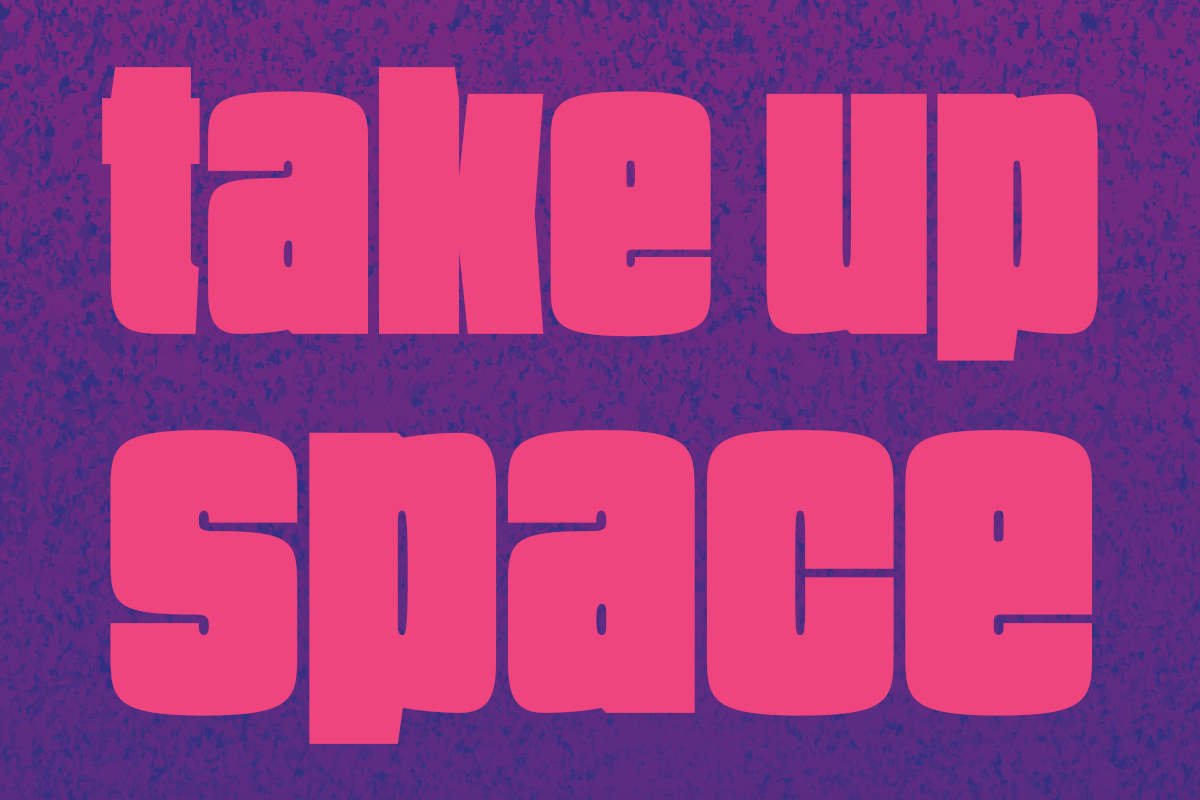Located in the Galleria of Rutherford Library at the University of Alberta, 2020 Black History Month presented a collection of photos showcasing African-Canadian Women.
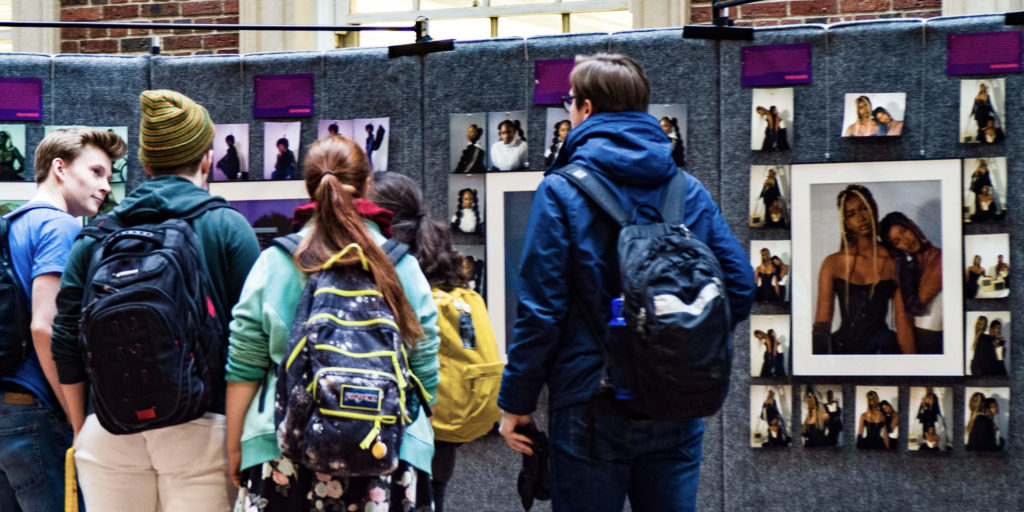
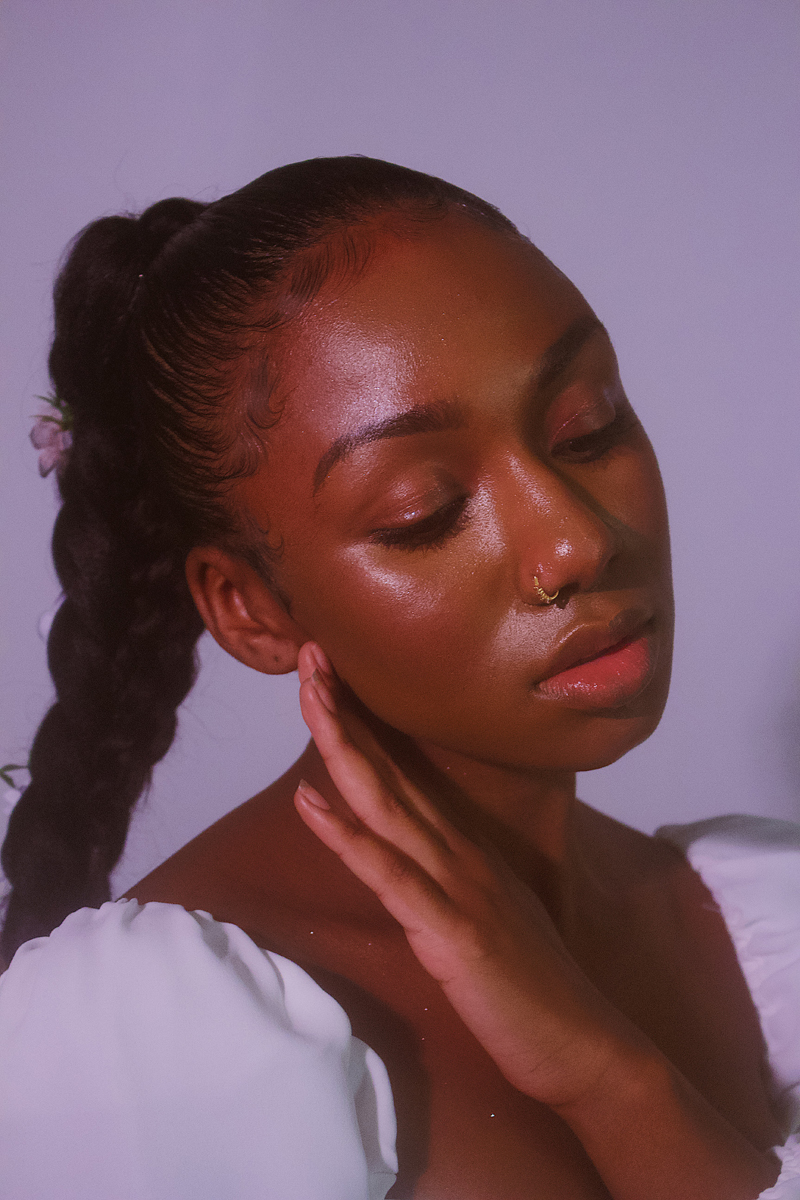
Yasmeen Charan
“I do feel like nowadays there’s such a huge checklist for being a black woman. Mostly in the form of societal expectations. You’re expected by society to be a strong person who has to withstand criticism and disrespect. And to give society a piece of your mind can end up with you being labeled ‘aggressive’ or ‘ratchet’. As black women we are expected to be less of our natural selves to be accepted. Our natural hair isn’t appropriate and our individuality makes people uncomfortable. Society expects us to be compliant or else we’re considered stubborn. All of these expectations become a checklist that our society enforces upon us. All to shape us into the submissive beings that they want us so badly to become. Growing up with two conflicting cultures in my life I really started realizing this. I appreciate this project so much because it’s all about black women being as outgoing and as authentic as we can be. Meeting so many REAL people inspired the shit out of me.”
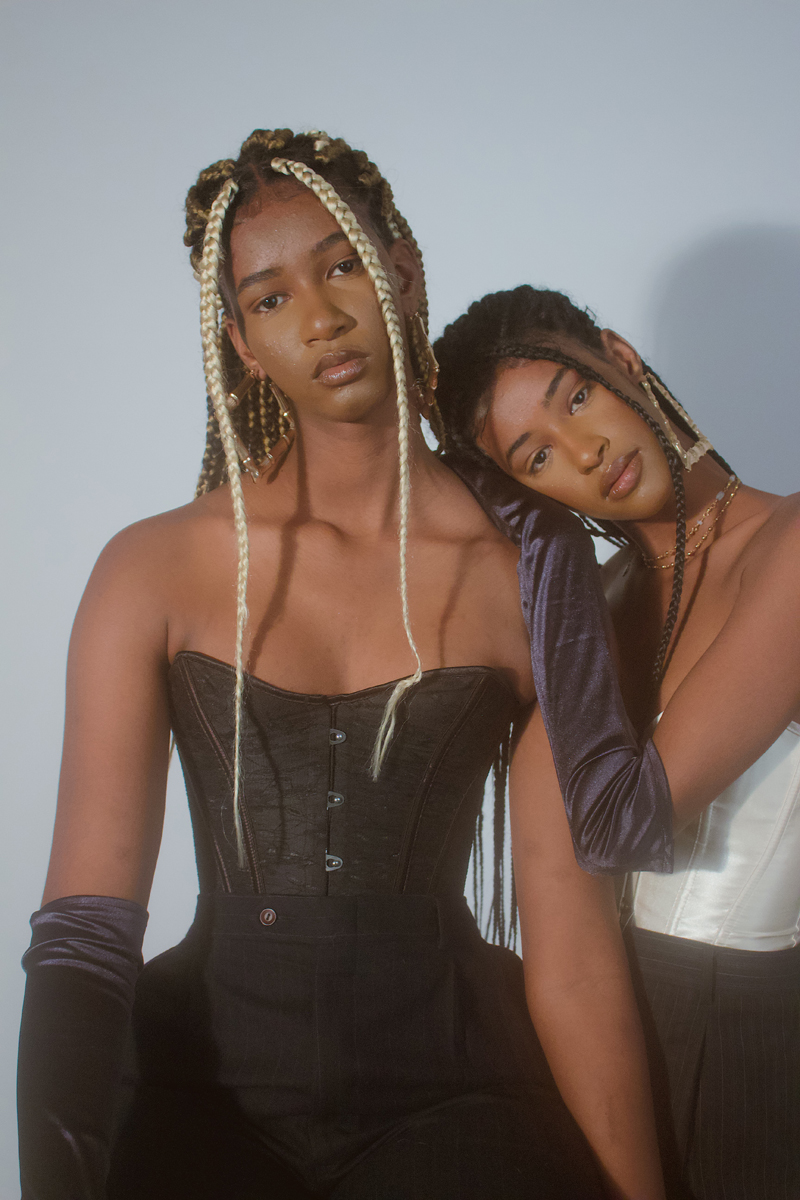
Dhaltu Gudata (left)
“Something I think my sister and I both really value is family. Not just our blood family but the people that we keep around us. There are a lot of friends that we have that are not just friends to us, they’re family. I think watching how careful my sister is about who she allows into her life has taught me to do the same. It’s taught me to really think about what I want in a friend and what I don’t want in a friend and that if someone enters my life and mistreats me I don’t have to lay down and allow it to happen. I have the power to either voice my concerns or kick that person to the curb. Honestly, the most important thing my sister has passed down to me is that this is my life and nobody else’s. My happiness is in my own hands and I have to protect it at all costs.”

Badhatu Gudata (right)
“Growing up my sister and I weren’t very close. I always made sure she knew not to overstep certain boundaries and respected my space but I also always made sure that I looked out for her as much as I could. She could be fairly sensitive sometimes so as her older sister I was usually the tougher one. One thing I think that I’ve passed down to Dhaltu is to be aware of the people that you allow to enter your life. Not everyone is here to be your friend and not everyone has your best interests in mind so it’s really important that you guard your heart and protect your soul. I like to think that I’ve taught her how to protect her space, keep certain things to herself and that although it’s good to express her feelings she should always remember to get up, dust herself off and move on. That it’s not worth it to dwell on things out of our control and that we should always remember how beautiful this life is.”
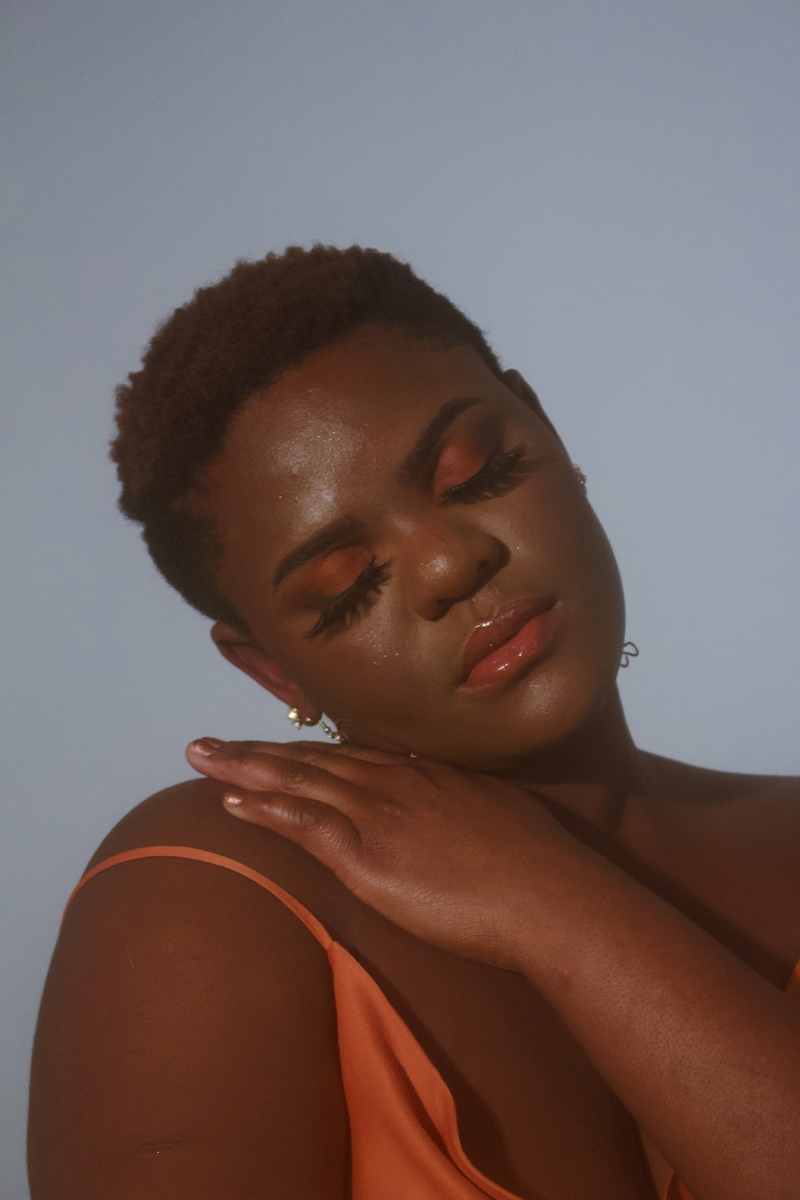
Victoria Chukwuanu
“When I had my hair it felt like I was someone else and cutting it has given me this freedom to feel like myself again. Growing up, my dad used to cut my hair and I never understood why he did it but now that I have gotten older, I’ve grown to understand and I thank him for it every day. It saves time and a lot of stress from having to braid it, and I save more money now, I worry less about it and I can sleep better at night. Cutting my hair has made me realize how much I needed to focus on myself and need to learn to put myself first. It is the start of a new beginning, a new life, and a new journey. If someone were to ask me whether or not I would do it again I would in a heartbeat, anytime, any day.”
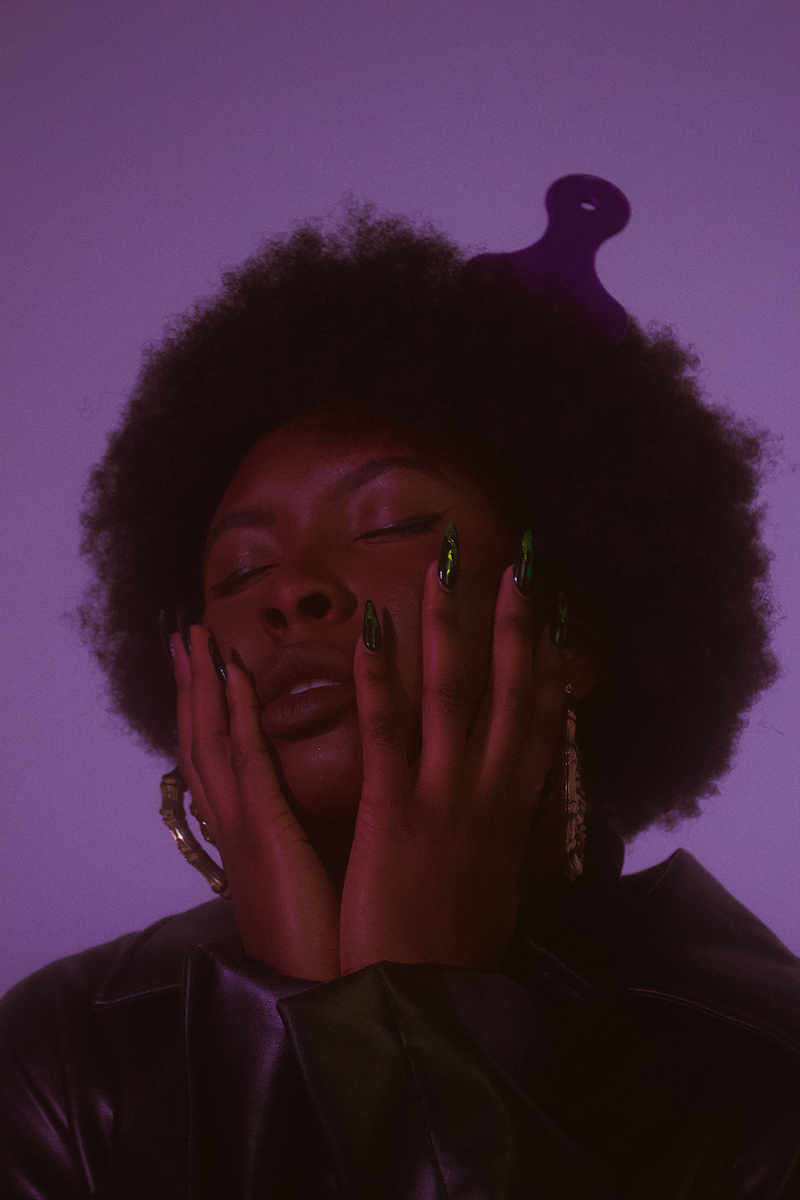
Faith Abimbola
“Even though our hair is a symbol of power, black people are still hesitant to wear it in its natural state. Natural hair is expensive and time consuming to take care of making it extremely hard to maintain. A lot of black girls grow up relaxing their hair (using chemicals to keep natural hair straight) because natural hair is so high maintenance. However, with more and more black people learning how to take care of their hair many more of us are finding ways to maintain our hair. Many black people still face discrimination based on the appearance of our natural hair in public spaces. Black hair has a long history of being politicized and stigmatized in the workplace — for men as well as women. For example If a black person was going to be part of corporate culture, they would be expected to not only dress the part but dress their hair the part. Although we still have a long way to go in increasing amounts of representation and education when it comes to natural hair is normalizing natural hair in public spaces.”
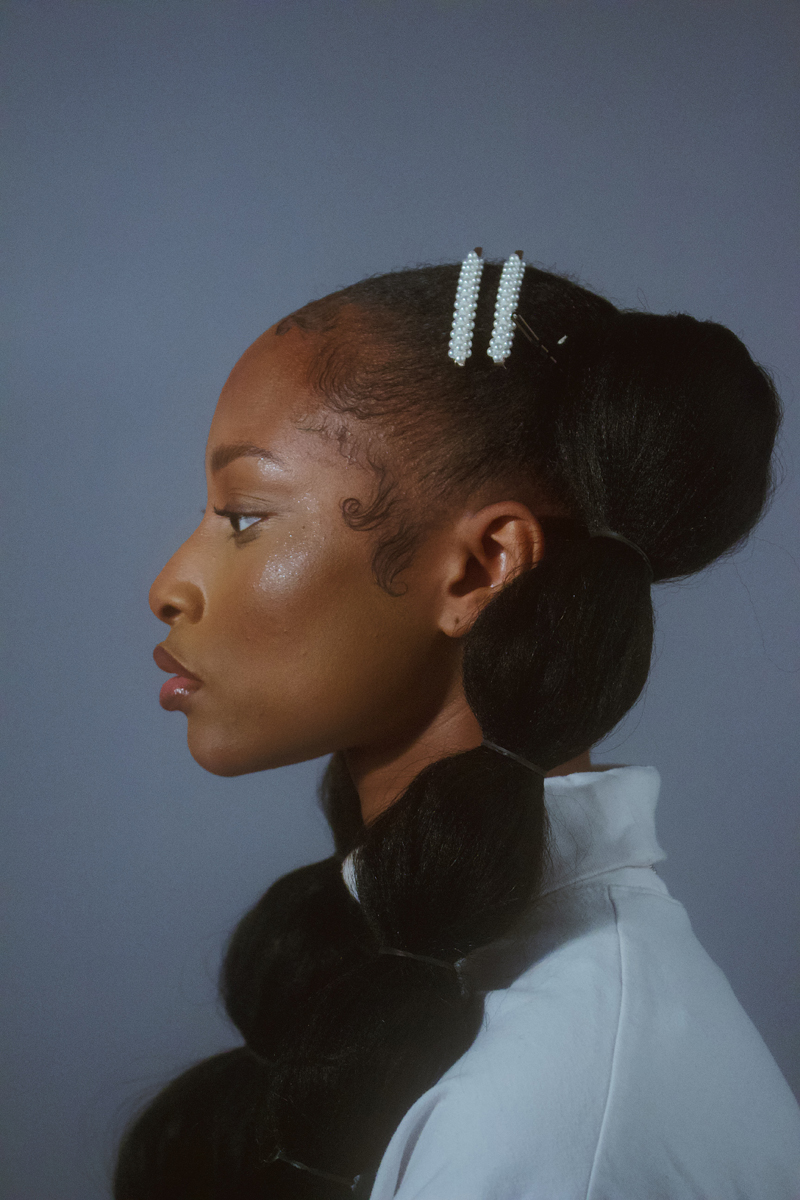
Tenny Ajayi
“Being a person of color, I was assimilated at a young age into a society where white women held the beauty standard over women of color. I grew up in an environment where we were basically brainwashed into hating our natural features. We felt forced to change things about ourselves like our skin or our hair. From my childhood to my adolescence, I never saw women of dark skin or with type 4 natural hair on television. No one looked like me and coming from a society where people bleached their skin to look lighter and relaxed their hair in order for it to be more straight, I followed suit (didn’t bleach my skin though). Years later I got tired of relaxing my hair so I made my mum cut it all off. As a young adult, I have taught myself to be comfortable with my features and where I’m from. So I boldly say now that I love my skin. I love my hair. I love my culture. I love that I am unique and that I’m endowed with gifts and talents that leave others in awe. I love my roots…in Africa.”
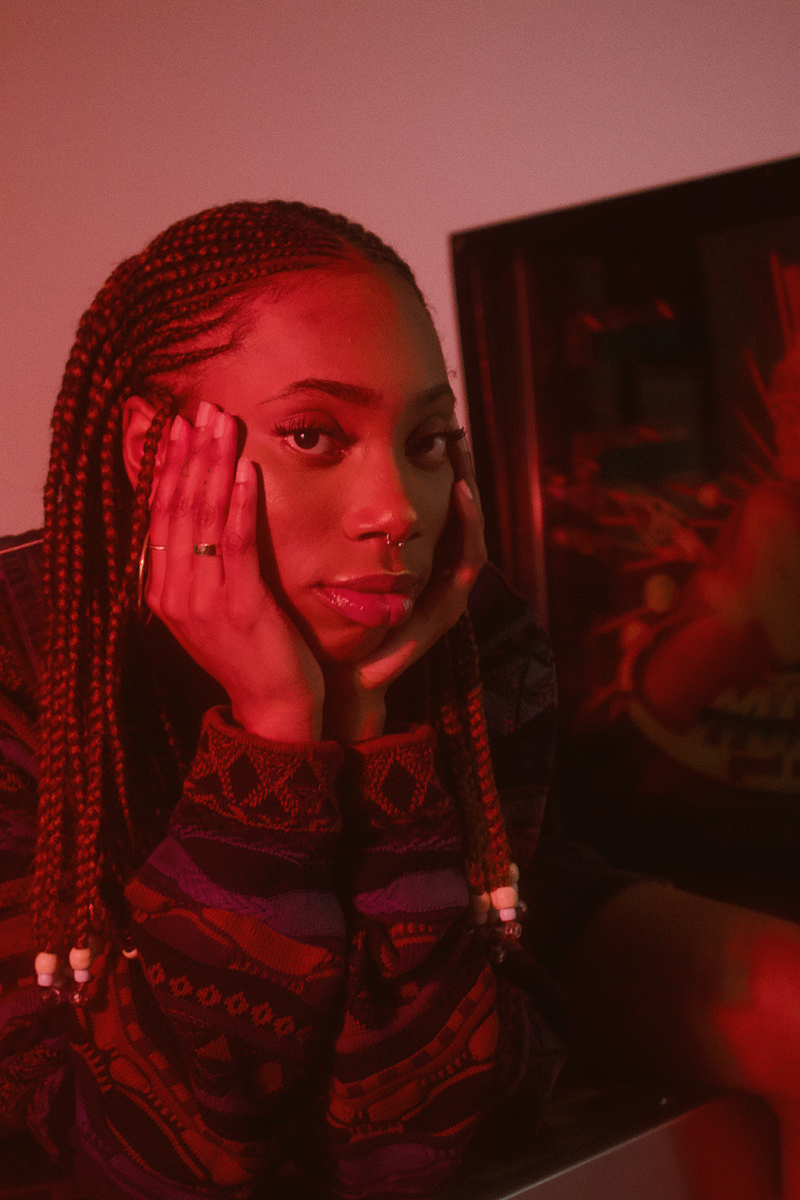
Pamela Okolie
“The best part about being a black woman is knowing you stand in a category by yourself. All black women always seem to be doing their own thing in their own unique way. While I am my own subset and a universe within myself, there black women across the planet in a class of their very own. Black women are strong, confident and unwavering, while at the same time serving as some of the most compassionate and empathetic beings the world has ever known. The society we live in has thrown so many blows to try and dim our shine and invalidate our authenticity while simultaneously trying to steal it from us but that has only made us work that much harder to protect our creations, all the while doing it 10 times better.”
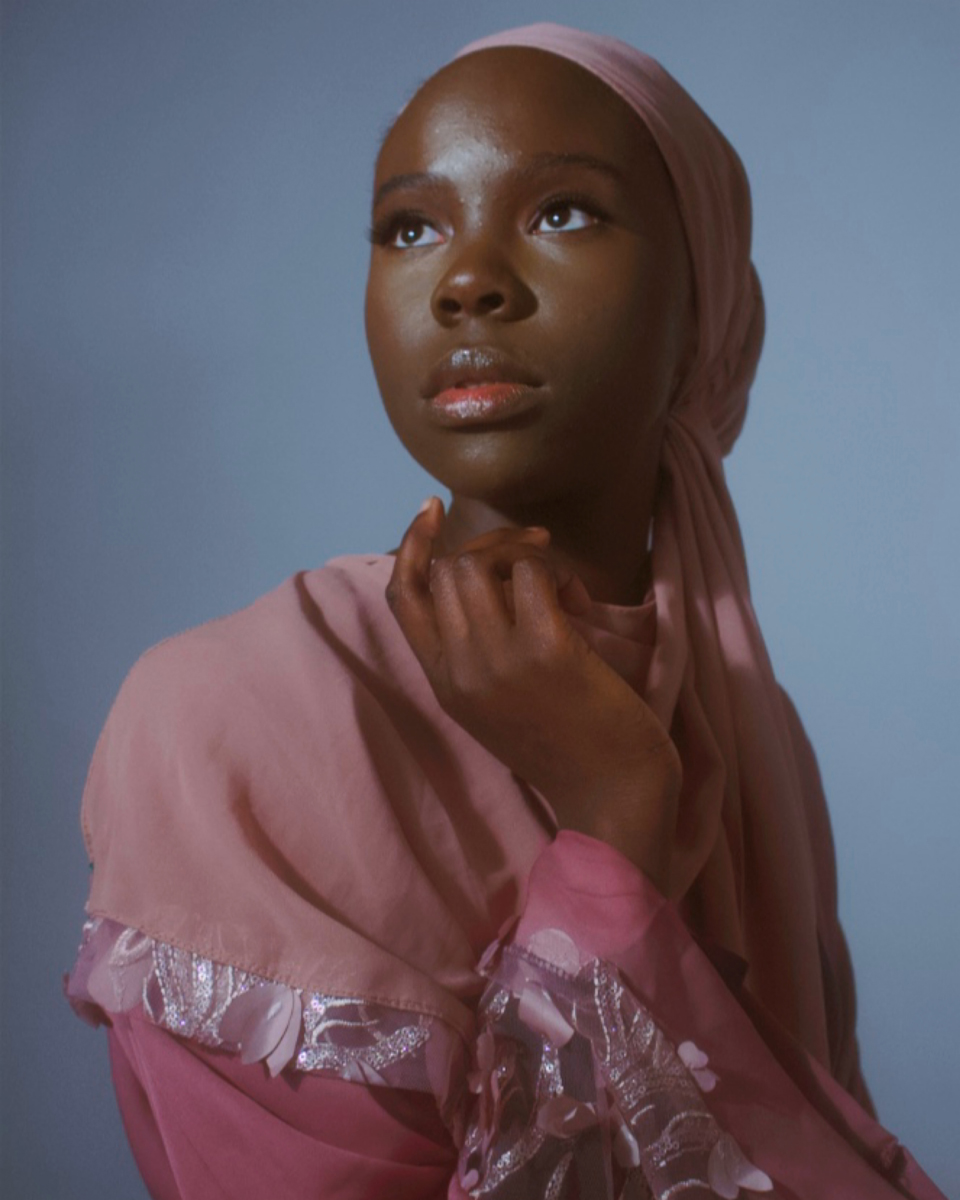
Hanifa Kalyegira
“A big misconception about my hijab is that I have been forced to wear it and that I didn’t have a choice to. Well I did have a choice when I started wearing it at a young age. I knew that I was representing my religion and who I was and that’s being the hijabi Queen that I am. Whether we young Muslim girls decide to wear it or not, it doesn’t matter as we know who we are at the end of the day. Our hijabs do not define us, they are just a part of what makes us who we are.”
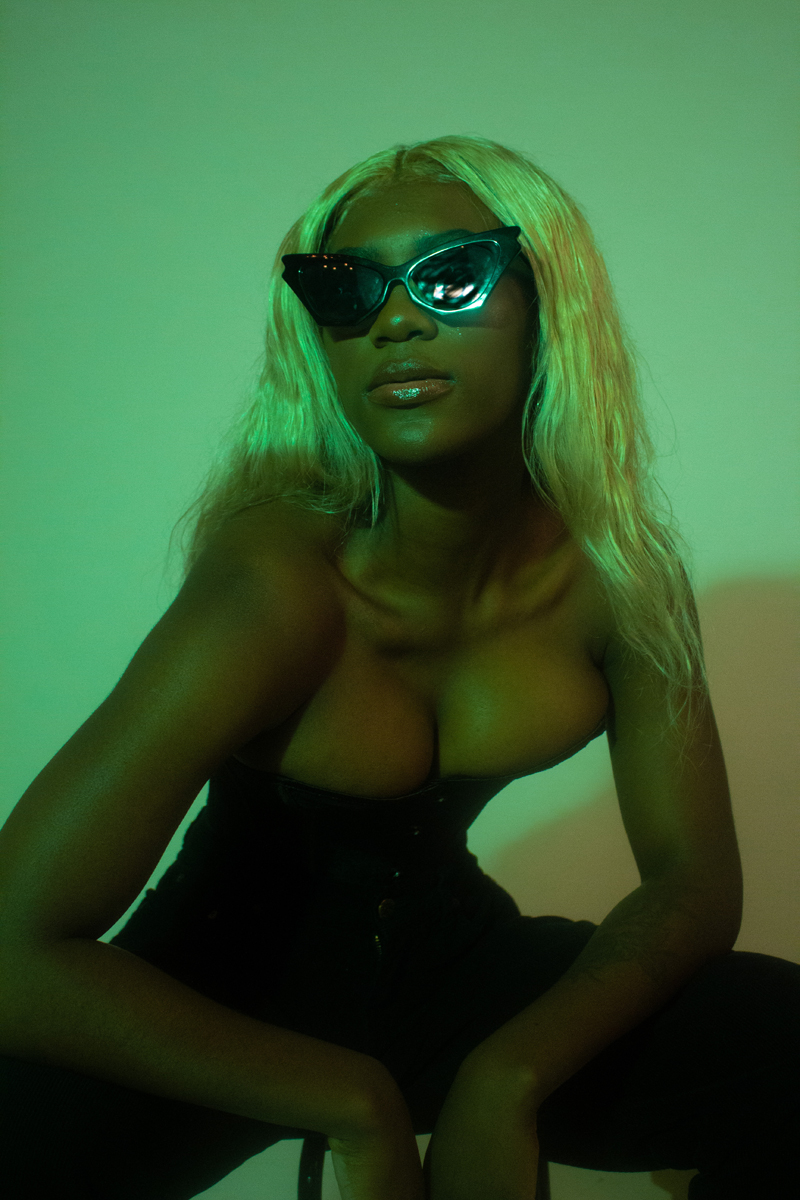
Lissa Rukande
“I’ve really learnt to be comfortable in my own skin by telling myself ‘fuck it’. Honestly, it’s funny because for the longest time I would always look for validation through other people’s eyes but me gracefully gaining enough confidence and being able to respectfully say ‘fuck it my skin is the only tone I was born and raised in,’ I’ve managed to comfortably find happiness within. Growing up I always got the short end of the stick. At the time society’s standard made a young black girl like me feel like it was mandatory that you have a certain skin tone/shade (lighter shade) in order to get accepted into almost anything, whether that be school, high end jobs, entertainment industry or even something so simple as a double tap. But as I continued to grow over ‘society standards’ I’ve learnt I can’t change my physical appearance but I can definitely change my attitude towards how I want to appeal to others. So with that all that being said, I LOVE MY BLACK ASS SKIN.”
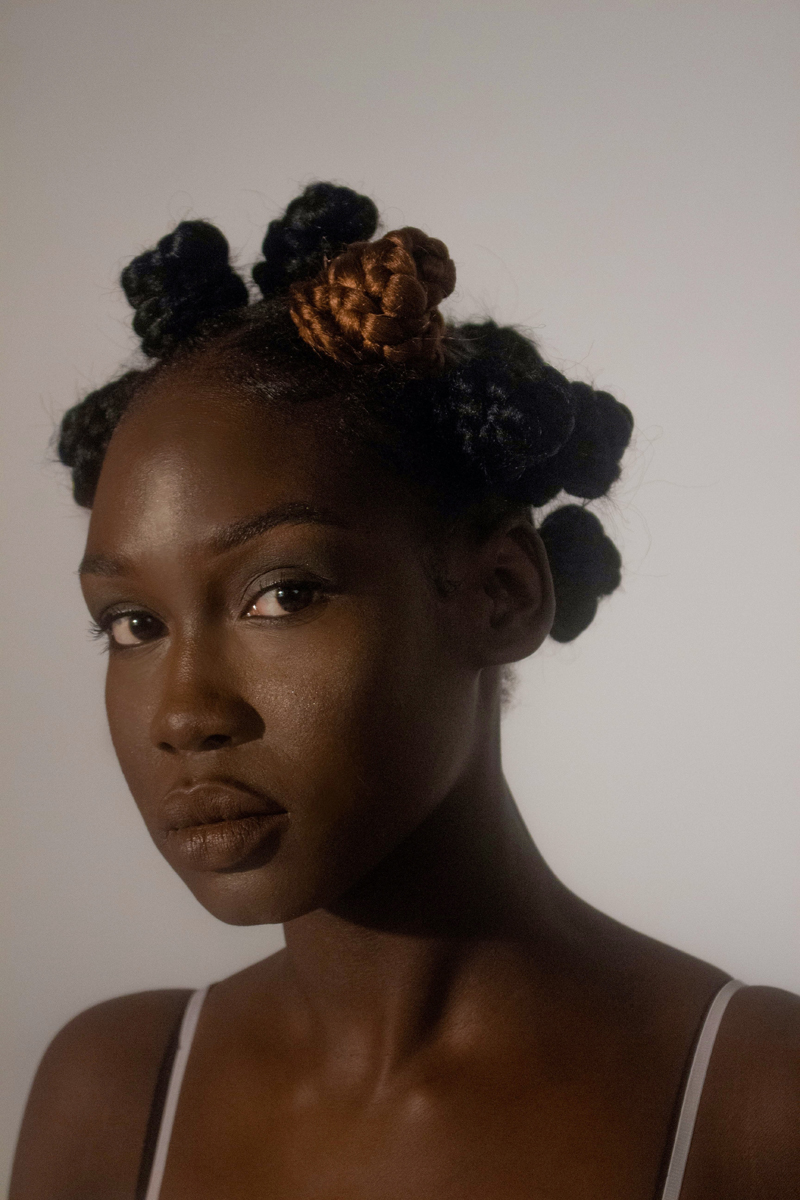
Agot Ngor
“I’ve definitely come to love my features as I’ve gotten older. My big nose, big lips, big eyes, melanin rich skin. I look at myself now and I’m confused. Like how did I not notice what I was blessed with? I know that’s because black beauty has been dismissed and put down so often and to this day you still hear the bitter negativity towards dark skin and for a while I used to internalize it. It all comes down to uplifting each other. I’ve been uplifted and I’ve uplifted others. I really love what makes me me.”
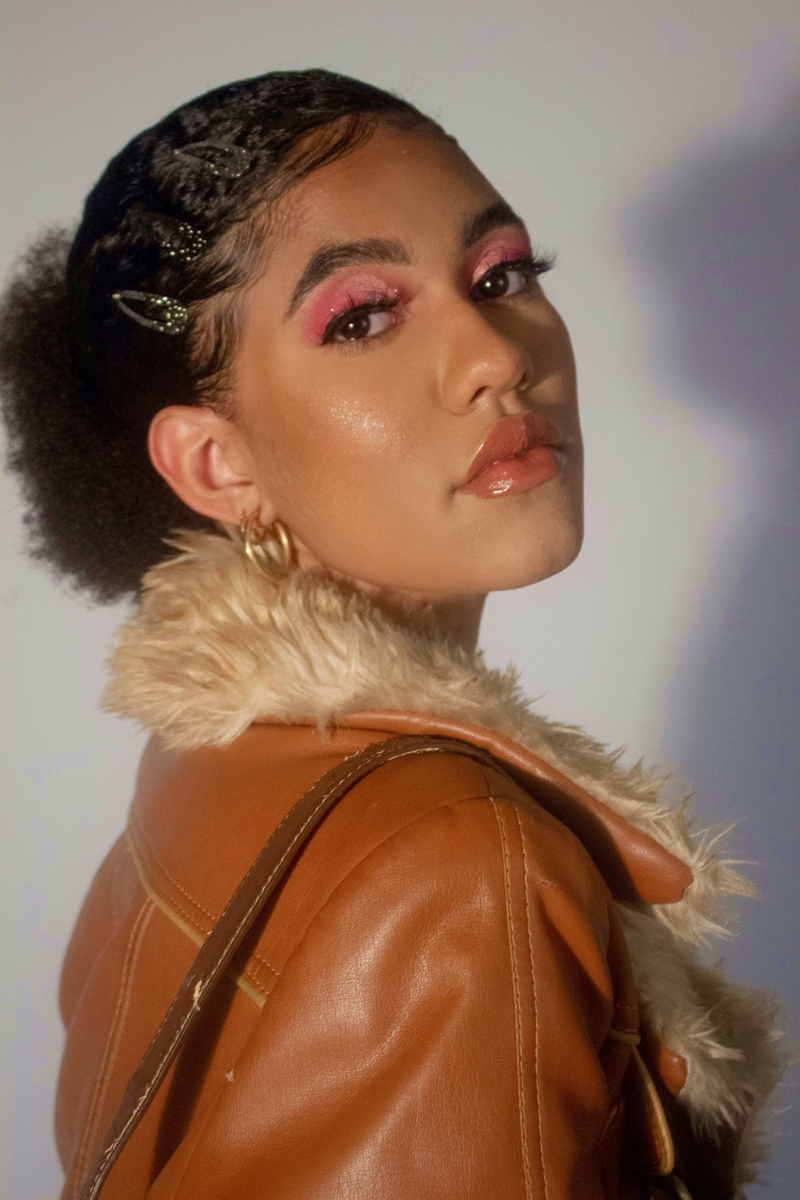
Celine Caruso-Dixon
“I think that a little bit of everything started with black women. Obviously clothing is a big part of it and something that we see every single day, but it’s more than just clothing. It’s the whole aesthetic that comes with clothing. The mixing and matching, the accessories, the shoes, the purses even. The whole fit. But more importantly the way it’s worn. Anyone can put on a nice outfit, but if you don’t know how to wear it it’s no longer a nice outfit. The “Boss Bitch” attitude came from black women. Where else is it going to come from? You can’t tell me that a woman who has to push and fight to even be considered for the start line isn’t going to be that. Having to juggle racism to the next level with having a job, going to school, either supporting a family or yourself, literally the basics of everything. Hair. I think that’s the biggest one honestly. It sounds strange to say but hair in all of its natural glory. Bantu Knots, Cornrows (Not Boxer Braids), Top Knots, Afro-Puffs, Afros, Dreads/Locs, Waves, Silk Presses, Weaves, Wigs, Sew-Ins, Edges, Clips, Durags, and Bonnets. All of it. All came from black women. And we see it every day in modern culture. We are criticized for it when non-black people are praised for it. Thick thighs, slim waists, big lips, long Eyelashes, literally all our features. From the super skinny queens to the thick queens. Our bodies, in their most natural selves, started what most people see as gorgeous today. Lip Gloss. EVERY BLACK IDENTIFYING WOMAN HAS AT LEAST 6 LIP GLOSSES. WHY? CAUSE WE LOOK AMAZING IN ALL OF THEM. Black women have a part in literally every mainstream culture that you see present in today’s society. These are just a few things that consistently affect me personally.”
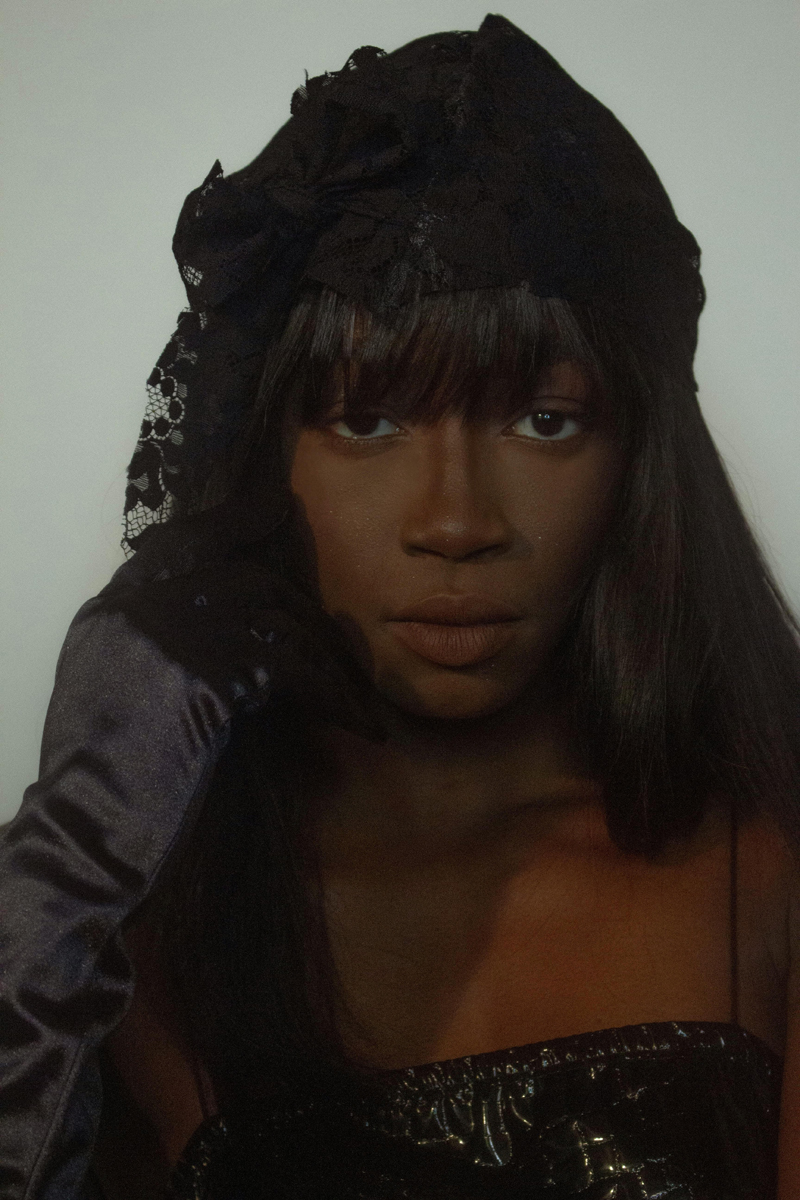
Marie Kamara
“Black is excellence. This does not mean we are superior or less than any other culture but we attract the masses, because of our diversity and our uniqueness, it’s unlike what anyone has ever seen before. They take so much of our culture but when it comes to the systematic issues that affect us they want no part. They braid their hair, they plump their lips, they darken their skin. These are the features I already have, that I was often bullied for but all of sudden it’s something everyone wants, as long as they’re not on me. We’ve created and developed so much of what pop culture is in the world and no one can deny that. We’ve been contributing since the start of civilization. Why wouldn’t anyone want to be black. After so many years of oppression, we’ve endured we continue to rise above it. Black is so cool until people walk in the shoes of black men or black women. Then it’s not so cool.”
Special Thanks to:
- Creative Director: Nesochi Ihejirika
- Photographer: Aliya Logun
- Make-up Artist: Adannaya Uzor
- Sponsors:



